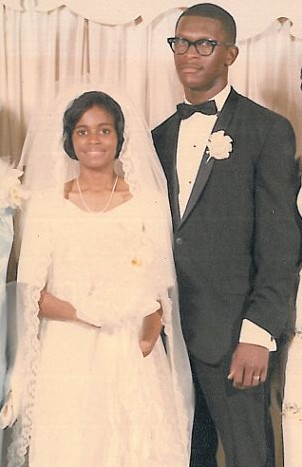Every year we choose an honoree who embodies the Control Your Cash principles. For instance, here’s last year’s. The award itself is nothing physical, just a commendation here on CYC. Winning doesn’t even guarantee you notoriety; the 2010 winner appears to have fallen off the face of the Earth. This year’s winner is erstwhile presidential candidate Herman Cain.
This is not an endorsement of his political candidacy. And the preceding sentence doesn’t mean that we reject his candidacy, either. Moot point, anyway. For the record, our guy is Ron Paul, the most principled candidate since Calvin Coolidge. But Paul’s story doesn’t illustrate our point as well as our Man of the Year’s does.
It’s an easy mindset to get into, that building wealth is restricted to the moneyed class, the bluebloods, the politicians and their scions, what the filthy people who appear to have finally removed themselves from Zucotti Park called “the 1%”. No, this is America. Believe it or not, complaining about The Man wasn’t always our national pastime.
We can agree that 130 years ago, being born into a poor family was a far greater obstacle than it is today. Let’s split the difference and look at whether being born into modest circumstances 65 years ago would result in a life of want and need.
Our previous Men of the Year have been relatively obscure; just regular folk who buy assets, sell liabilities, and enjoy the inevitable wealth that accrues. In 2011, class warfare became such an overriding theme of life in America that we had to look for a Man of the Year whose story proves that growing up modestly is neither a necessary nor a sufficient condition for staying that way. There are millions of people like that, but our winner was easy to find biographical information on.
Here’s a man who ran for the office of most powerful person in the world, and whose parents were a housekeeper and a barber/janitor. He grew up black in the 1940s and 1950s in Memphis and Atlanta, which is similar to growing up Jewish in the 2010s in Damascus and Aleppo.
Again, read what his parents did for a living. Their collars were bluer than Lake Tahoe. Young Herman studied hard in school, and applied to the University of Georgia. As a black man. In 1963. You’re not going to believe this, but they didn’t allow him in.
So Herman turned to a life of recreational drug use and folk songs. Just kidding, he attended historically black Morehouse College instead and earned a degree in women’s studies. Alright, more kidding. Women’s studies didn’t exist at the time. Math, on the other hand, did and always will. He majored in that, and followed it up with a master’s in computer science.
This didn’t guarantee him a life of riches, but it helped immensely. It almost certainly guaranteed him a job. Civilian ballistics analyst for the Navy, if that sounds like something worth aspiring to.
From there, you’re probably somewhat familiar with the story. But advancing from computer systems analyst to CEO of a major corporate subsidiary to director (and then chairman) of a regional Federal Reserve Bank was just gravy. What got Herman Cain the Control Your Cash Man of the Year award was his ability to make sound decisions that lesser people just refuse to make.
Yes, he bought some assets and sold some liabilities along the way, financial ones. But he applied the same principles to hugely important non-financial decisions, too. Living the right way (or not living stupidly) is a hell of a lot more crucial than remembering to rebalance your 401(k) with the recommended asset classes. Here’s an example.
Herman Cain’s family creation plan, in chronological order:
- Get married
- Have one kid
- Have another
- STOP.
There are some intermediate steps, e.g., look at your net worth and cash flow and determine if you can create another mouth to feed, but what we’ve given you there is the gist of it.
Your average poor person’s family creation plan, also in chronological order:
- Get pregnant/impregnate someone.
- Weigh having the kid versus sucking it out with a vacuum tube.
- Collect welfare either way.
- Get pregnant/impregnate someone again, not necessarily the person in Step 1.
- Repeat Step 4.
- Remain unmarried. Or get married, for no better reason than you’re already in too deep.
- Divorce. Somewhere along the way, introduce substances to assuage the self-inflicted pain.
Your average poor person’s education plan has fewer steps than the family creation plan, but they’re just as stupid. And none of them involve the hard sciences.
Public disclosure forms estimate Cain’s wealth at between $2.9 million and $6.6 million. If you grew up miles and decades from the nearest lynching and/or cross-burning, what’s your excuse for your net worth?
This article is featured in:
**Top Personal Finance Posts of the Week: Psycho Suze Orman Edition**





